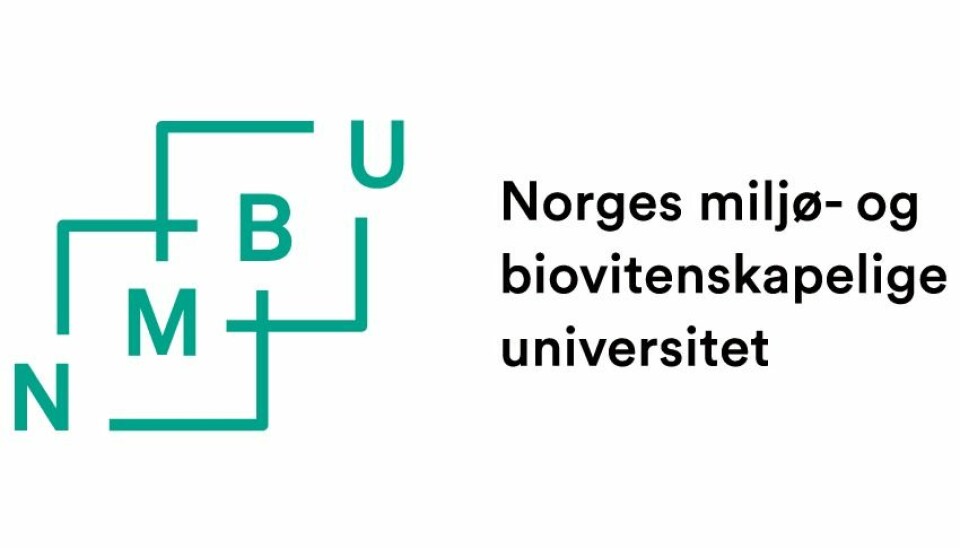Ledig stilling ved NMBU
PhD scholarship within food chemistry (milk lipids)
Deadline: 30.08.2019
About the position
The Faculty of Chemistry, Biotechnology and Food Science (KBM) at the Norwegian University of Life Sciences (NMBU) has a vacant 3-year PhD–position within food chemistry. The successful candidate will be anchored in the research groups “Dairy technology and Food quality” and “Natural Product Chemistry and Organic Analysis”.

The research project aims to obtain increased in-depth knowledge on the composition and structure of milk fat globules. The project will be related to other ongoing projects at KBM such as “Foods of Norway” and “LipidInflamigenes”.
Foods of Norway develops novel feed based on Norwegian resources, and experiments to test the effect of these novel feeds on food quality is in progress. This PhD student will be connected to ongoing experiments, which involves feeding of cows with novel feed and studies of the influence on the milk fat globule (milk fat composition).
Lipidinflamagenes investigates the effect of lipid composition and triacylglycerol (TAG) structure in meat and dairy foods on digestibility and low-grade inflammation in cells, animals and humans. The localization of the fatty acids on the TAG is probably of nutritional importance and will be focused. In both these projects additional in- depth characterization of milk fat in various dairy products would be important.
In addition, a part of the project would be to investigate on how processing influences the milk fat and the milk fat globule in dairy products.
The 3-year PhD grant will be covered by NMBU, while the research will be financed by the above-mentioned projects.
Main tasks
Objective of the position:
To study changes in composition and molecular structure of milk fat and milk phospholipids by using off-line SPE-SPE with LC-MS and GC-MS methods.
Secondary objectives:
- Identification and characterization of acylglyserides (MAGs, DAGs, TAGs), free fatty acids (FFA) and phospholipids in raw milk (effect of feeding, fat content).
- To study the position (sn-1, sn-2 and sn-3) of milk fatty acids on the acylglycerols.
- Identification of membrane composition in milkfat globules and characterization of technological influences in milk as a function of homogenization pressure, temperature and fat content.
- Study the effect of novel feeds on the milk fat composition with special emphasis on long chain complex fatty acids and the phospholipid composition.
A research stay abroad is encouraged.
The successful candidate is expected to have a PhD education plan approved by KBM within the first months of appointment, and to complete the PhD by the end of the project period.
Qualifications and skills
The successful applicant must meet the conditions defined for admission to a PhD programme at NMBU. The applicant must have an academically relevant education corresponding to a five-year Norwegian degree programme, where 120 credits are at master's degree level. The applicant must have a documented strong academic background from previous studies and be able to document proficiency in both written and oral English. For more detailed information on the admission criteria please see the PhD Regulations and the relevant PhD programme description.
Required academic qualifications
The successful applicant must hold a master’s degree within food chemistry, dairy chemistry or analytical organic chemistry, and have experience with LC-MS and GC-MS. The applicant must document expertise and interest in the research subject.[SBS1]
Desired academic qualifications
Candidates experienced in minimum two out of the following will be preferred:
- Experience with analytical chemistry
- Experience with LC-MS and GC-MS
- Experience with dairy chemistry
- Experience with lipid analysis
Good examination results within the mentioned areas are required. However, practical qualifications will also be emphasized.
We expect that the candidate will successfully publish research findings in high-impact peer reviewed journals.
We are looking for a candidate highly motivated for a career in science and research and has the ability to work independently, being proactive and creative. The person should also have an analytical inquisitive attitude and excellent collaborative skills.
Required personal skills
- Analytical mindset
- Accuracy and patience with experimental work
- Curiosity and high motivation for research
- Strong communication skills, both written and oral
- Ability to work independently
- Good collaboration skills
- Demonstrated proficiency in spoken and written English
Remuneration and information
The position is placed in government pay scale position code 1017 PhD Fellow, wage framework 20, salary grade 54-62. PhD. Fellows are normally assigned pay grade 54 (NOK 479 600) on the Norwegian Government salary scale upon employment and follow ordinary meriting regulations.
Employment is conducted according to national guidelines for University and Technical College PhD scholars.
For further information, please contact:
- Professor Siv Skeie by email: siv.skeie@nmbu.no or by phone +47 67232552; or
- Professor Dag Ekeberg by email: dag.ekeberg@nmbu.no or by phone +47 67232464
Application
To apply online for this vacancy, please click on the 'Apply for this job' button above. This will route you to the University's Web Recruitment System, where you will need to register an account (if you have not already) and log in before completing the online application form.
Applications should include (electronically) a letter of intent, curriculum vitae, full publication list, copies of degree certificates and transcripts of academic records (all certified), and a list of two persons who may act as references (with phone numbers and e-mail addresses).
Publications should be included electronically within the application deadline.
Application deadline: August 30th 2019
Printed material which cannot be sent electronically should be sent by surface mail to Norwegian University of Life Sciences, Faculty of Chemistry, Biotechnology and Food science), P.O. Box 5003, NO-1432 Ås, within August 30th 2019. Please quote reference number 19/01197.
If it is difficult to judge the applicant’s contribution for publications with multiple authors, a short description of the applicant’s contribution must be included.
The relevant NMBU Department may require further documentation, e.g. proof of English proficiency.






